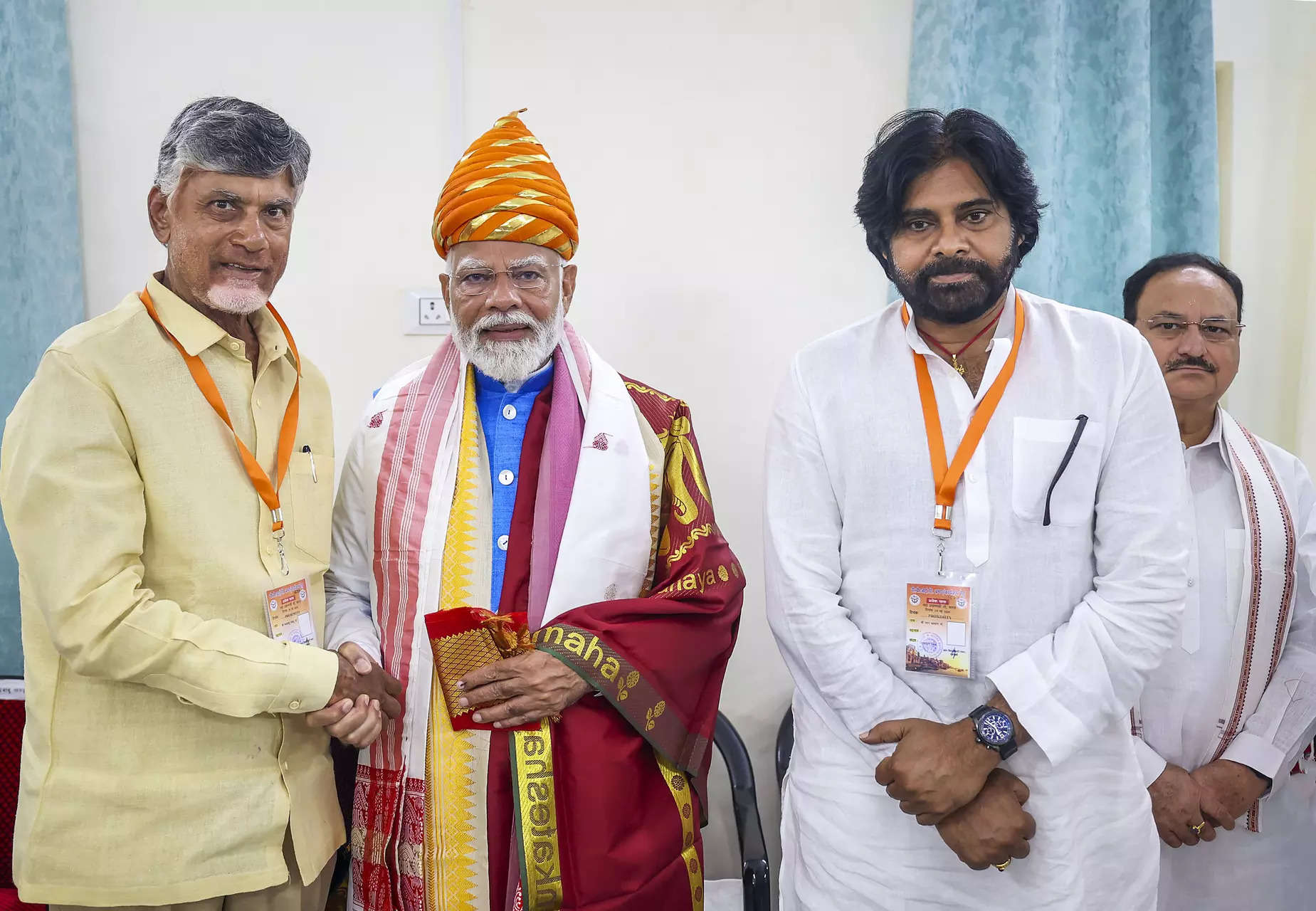TOI News Desk
Two parties – Chandrababu Naidu’s TDP with 16 seats and Nitish Kumar’s JD(U) with 12 seats, hold the key to BJP-led National Democratic Alliance (NDA) 3.0.According to media reports, both the parties are vying hard for plum posts, including the Lok Sabha Speaker’s position. The reports further indicate that Speaker’s posts ought to be offered to alliance partners as they cite the example of TDP’s GMC Balayogi who was Speaker when former PM Atal Bihari Vajpayee headed BJP-led coalition government in the 1990s.
The received wisdom is that the move would protect partners from any split in the future. The Speaker’s role is paramount when it comes to proving majority on the floor of the House or in case the anti-defection law comes into play. When it comes to disputes on the floor of the House, the Speaker’s decision is final. TDP which has been a part of various coalition governments in the past knows the importance of Speaker’s post.
How is the Speaker picked?
The Speaker is generally elected in the first meeting of members of the Lok Sabha. Before the Speaker can be picked, an MP, usually the longest serving, is selected as the pro-tem (for a limited period of time) speaker. The pro-tem speaker presides over the first few sittings of the new house and also presides over the administration of oaths of new MPs and conducts the vote for the Speaker and Deputy Speaker.
What are the Speaker’s powers?
As the head of the Lok Sabha, the Speaker is the head and principal spokesperson of the house. The Speaker has to maintain order and decorum in the House and can adjourn the proceedings of the House or suspend it in case of an absence of decorum. The Speaker is considered the final interpreter of the provisions of the Constitution of India, the Rules of Procedure and Conduct of Business of Lok Sabha.
The Speaker decides the questions of disqualification of a member, a ground of defection under the provisions of the Tenth Schedule, a power vested in the Speaker by the 52nd Amendment. However, in 1992, the SC ruled the decision of the Speaker is subject to judicial review.
The Speaker’s role is particularly paramount in case of defections where even the Supreme Court’s powers are limited. Last year, allegations were made that Maharashtra assembly speaker Rahul Narwekar was playing a partisan role regarding disqualification petitions, but the Supreme Court gave the speaker the final opportunity to hear and decide the anti-defection proceedings against Eknath Shine and his MLAs who had broken away from the Uddhav Thackeray faction.
When a party wins majority on its own in Lok Sabha, the Speaker’s post is mostly ceremonial. Traditionally, the Speaker’s post goes to the ruling alliance while the Deputy Speaker’s post is held by a member of the Opposition party. However, there is no rule specifying this and in the 17th Lok Sabha, the position of the Deputy Speaker was vacant.
Speakers of Note
– G. V. Mavalankar of the INC was the first Lok Sabha of independent India.
– Neelam Sanjiva Reddy of the Janata Party was the first non-Congress speaker in Lok Sabha serving for 109 days.
– Balram Jakhar of INC(I) was the longest reigning Speaker whose term lasted for 9 years, 329 days as he served as a Speaker in 7th and 8th Lok Sabha.
– GMC Balayogi of TDP served as speaker under Prime Minister Atal Bihari Vajpayee for 3 years and 342 days in the 12th Lok Sabha. He was the first Dalit speaker of Lok Sabha.
– Somnath Chatterjee of CPI(M) served as speaker for five years from 2004 in the 14th Lok Sabha.
Famously, when the CPI(M) withdrew from the UPA-led government in 2008 over the Indo-US Nuclear deal, Chatterjee refused to resign citing his position as non-partisan as he oversaw the business in the house. He was expelled from the party for his non-partisanship and the acrimony spilled into his funeral when his family members asked CPI(M) members to leave his funeral and refused to let his body be draped by the party’s flag.



